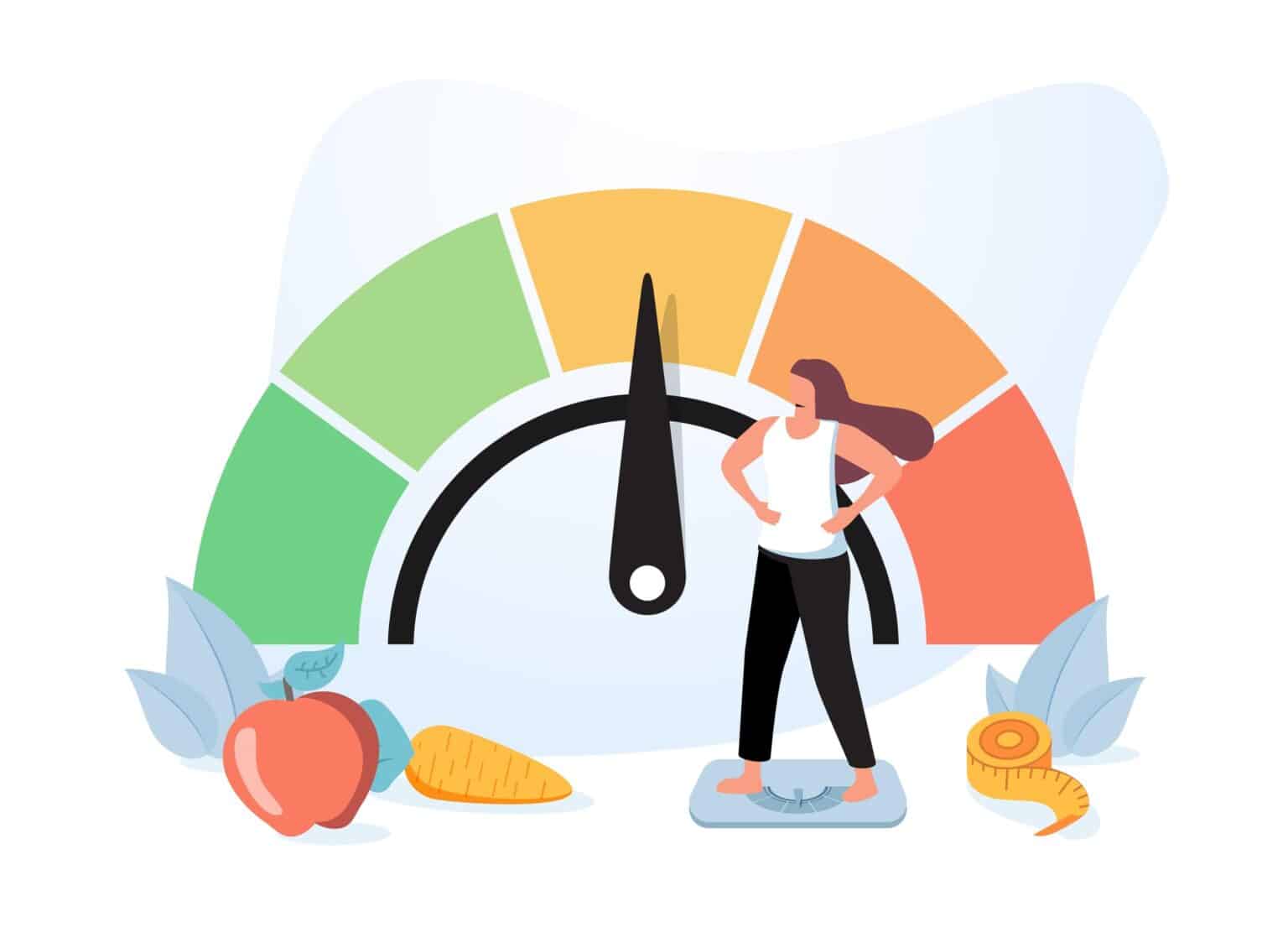Blog

How to Cope with Weight Gain in Eating Disorder Recovery
Why it’s important to restore your weight and how you will get through it
Weight restoration is one of the most physically and psychologically uncomfortable aspects of eating disorder recovery.
Over the course of a restrictive eating disorder, the body adjusts to deprivation as a means of self-preservation (it’s clever like that!). However, these physical changes are often not apparent until we attempt to re-nourish ourselves. It is when we start the re-feeding process that uncomfortable symptoms manifest in the form of early satiety, gastrointestinal symptoms (such as bloating and constipation) and fluid retention.1
Psychological distress is another unfortunate but common experience during the refeeding phase.
When a person has been restricting their intake for an extended period of time, it can be extremely confronting to be faced with what seems like vast quantities of food and the expectation of rapid weight gain.
Although this initial period of recovery is incredibly challenging, it is also essential. It’s worth noting that these symptoms generally disappear as the person is renourished!
Keep reading to learn about WHY it’s so important to gain weight in recovery and how to cope with the discomfort of doing so.
Why is it important to gain weight?
When the body is deprived of nutrition, a phenomenon known as starvation syndrome occurs.2 This refers to the physiological and psychological effects of prolonged dietary restriction that are common in eating disorders, such as:
- Slowed metabolism
- Decreased heart rate and blood pressure
- Depression and anxiety
- Irritability
- Impaired concentration
- Social withdrawal
- Pre-occupation with food
- Increased hunger and binge eating
The symptoms of starvation syndrome are reversed with weight restoration and renourishment, regardless of whether the individual is considered “underweight” or not.
When renourishment is commenced, the body shifts from what is colloquially called “survival mode” to a hypermetabolic state in order to restore optimal functioning.3 This means that the body requires a significantly higher calorie intake to gain and maintain weight.
During weight restoration, the body first utilises energy and nutrients from food to reconstruct body tissue lost during starvation. Next, additional calories are used to repair the heart, brain, bones, joints, hormones and skin. Lastly, any remaining energy will be stored as additional body weight. As you can see, weight gain is the starved body’s last priority, which is why energy requirements are so high during recovery.
The process of weight restoration should continue until the person reaches their set point weight – you can read more about this concept here.
How to cope with weight gain
ONE: Work on body acceptance
Self-love is probably going to feel close to impossible during this time. Instead, focus your energies on working towards feeling okay in your body. You might try using affirmations like:
“My body is healing”
“The way my body looks does not define my worth”
“My body’s function is more important than its form”
“It’s okay for my body to change”
“I am learning to accept my body”
TWO: Remember that you are so much more than your body.
If connecting with your body feels too difficult right now, connect with other aspects of yourself – your mind, heart and soul. There is so much more to you (and your recovery) than what you look like! When you separate yourself from your body…
- Who are you?
- What do you care about?
- What are your strengths?
THREE: Get rid of clothes that no longer fit
When you feel ready, Marie Kondo your wardrobe and replace your old clothes with items that are comfortable and honour your body where it’s at. Consider asking a friend or family member to help you find the right size if this has the potential to be triggering.
FOUR: Write yourself a letter
When you’re in a particularly challenging moment, it can be incredibly difficult to remember why you want to recover. Write it down so you can refer back to it when you need to.
Here are some prompts to get you started:
- Why is recovery important to you?
- What will recovery look like?
- How do you want to live your life?
- What does the future look like?
- What has your eating disorder taken away from you?
FIVE: Honour your struggle
Remember how far you have come! Even if you are at the beginning of your recovery, taking that first step towards change takes enormous strength. You’ve got this!
We would love to support you on this journey towards recovery. Reach out to us at [email protected] to get in contact with one of our specialist dietitians.
Karli Battaglia MDiet, APD
EHL Team x
References
- Mascolo M. Anorexia Recovery and Overcoming the Physical Side Effects [Internet]. Eating Disorder Hope. 2018 [cited 26 January 2021]. Available from: https://www.eatingdisorderhope.com/information/bulimia/anorexia-recovery-and-overcoming-physical-side-effects-of-an-eating-disorder
- Keys A, Brozek J, Henschel A, Mickelsen O, Taylor H. The Biology of Human Starvation. Gastroenterology. 1951;17(3):459-460.
- Marzola E, Nasser J, Hashim S, Shih P, Kaye W. Nutritional rehabilitation in anorexia nervosa: review of the literature and implications for treatment. BMC Psychiatry. 2013;13(1).














